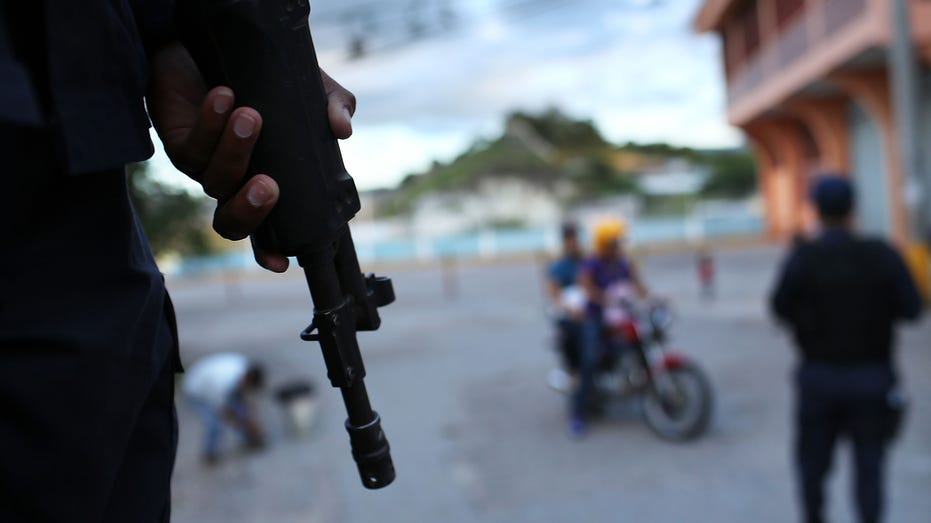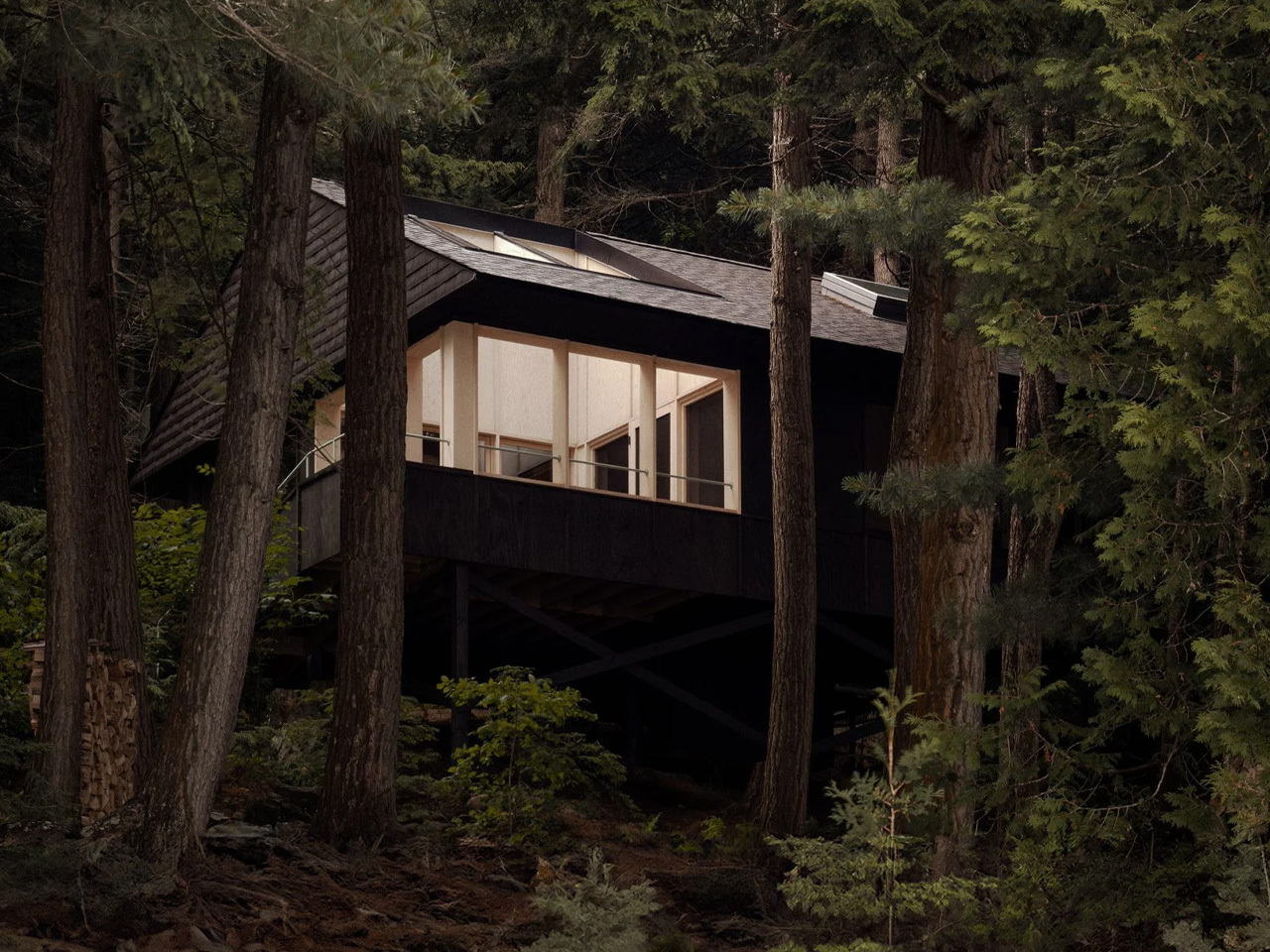GOP senators draw line against Trump shipping US citizens to foreign prisons
Republican senators are drawing a bright line against President Trump's exploration of sending “homegrown” criminals who are U.S. citizens to foreign jails, such as the notorious CECOT mega-prison in El Salvador. Trump said last month he would “love to” send American citizens who commit serious crimes to foreign prisons. He said his administration is looking...

Republican senators are drawing a bright line against President Trump's exploration of sending “homegrown” criminals who are U.S. citizens to foreign jails, such as the notorious CECOT mega-prison in El Salvador.
Trump said last month he would “love to” send American citizens who commit serious crimes to foreign prisons. He said his administration is looking seriously at the proposal, which he wants to apply to repeat offenders.
But the idea is running into staunch opposition from Senate Republicans, who say shipping U.S. citizens off to foreign prisons would violate the Constitution.
“Either he’s got the authority to do it, or it isn’t going to happen. But it sounds to me like you can’t deport citizens,” Senate Judiciary Committee Chair Chuck Grassley (R-Iowa) told The Hill.
Sen. Ron Johnson (R-Wis.), a staunch Trump ally, said Trump’s desire to deport U.S. citizens to foreign prisons would get blocked by the conservative Supreme Court.
“I’m not sure that would be constitutional. You’re talking about American citizens? I doubt that would hold up as something constitutional,” he said.
Sen. Rand Paul (R-Ky.) said Trump’s proposal is problematic on its face.
Asked about stashing U.S.-born criminals in El Salvador or another country, Paul told The Hill: “I think there’s going to be a real problem with that.”
“I can’t imagine you can deport a citizen. I don’t think you can incarcerate a citizen in another country, either,” Paul added in a follow-up interview.
Paul, an outspoken constitutional conservative, said he can’t tell whether Trump is serious about his proposal to send “homegrown” criminals abroad, a subject the president discussed on at least two public occasions last month.
“There are a lot of things that are said, over-the-top, for effect that aren’t serious proposals. But I don’t know in this case. I can’t imagine you can deport a citizen and/or incarcerate a citizen outside the U.S.,” he said.
Trump floated the idea of shipping American citizens to El Salvador during a joint appearance with Salvadorean President Nayib Bukele in the Oval Office last month.
“The homegrowns are next, the homegrowns. You’ve got to build about five more places,” Trump said to Bukele, referring to the Terrorism Confinement Center in El Salvador, known as CECOT, which houses 40,000 inmates, making it the largest prison in Latin America.
Bukele responded by suggesting that his country could hold convicted U.S. citizens, telling Trump, “Yeah, we got space.”
Bukele posted on the social platform X in February that he has offered to the Trump administration “the opportunity to outsource part of its prison system.”
“We are willing to take in only convicted criminals (including convicted U.S. citizens) into our mega-prison (CECOT) in exchange for a fee. The fee would be relatively low for the U.S. but significant for us, making our entire prison system sustainable,” he said.
Asked about sending U.S. citizens to El Salvador, Sen. John Cornyn (R-Texas), a member of the Senate Judiciary Committee, raised the long-closed Alcatraz Federal Penitentiary, the infamous prison off the cost of San Francisco as another option.
“I thought that’s what Alcatraz was going to be for,” he said.
But he stopped short of embracing Trump latest proposal to rebuild and reopen Alcatraz, which once held the nation’s most notorious criminals, including Al Capone and George “Machine Gun” Kelly.
“It’s the first I’ve heard of the suggestion but certainly want to have that conversation,” he said.
Trump endorsed the idea of sending U.S. citizens convicted of crimes to foreign prisons again in a recent interview with Time magazine, though he acknowledged it could face legal challenges.
“I would love to do that if it were permissible by law. We’re looking into that,” he said.
Trump explained that he would want to ship out repeat offenders who shuttle in and out of American prisons or convicts with long sentences who are burdens to taxpayers.
“We’re talking about career criminals that are horrible people that we house and we have to take care of for 50 years while they suffer because they killed people,” he said.
“We have crime rates under Biden that went through the roof, and we have to bring those rates down,” he added.
The president argued that the flood of migrants who entered the country during former President Biden’s time in the White House are fueling higher crime rates, though some experts, such as the Brennan Center for Justice, assert that immigrants do not commit crimes at higher rates than native-born Americans.
Trump during an interview with NBC’s “Meet the Press” that aired Sunday said he doesn't know whether he has an obligation to extend due process to migrants who are deported.
“I’m not a lawyer. I don’t know,” he said when pressed by NBC anchor Kristen Welker on whether migrants deserve due process.
He argued that the immigration system has become so clogged with cases that giving every immigrant who doesn't have permanent legal status due process could prevent his administration from deporting dangerous criminals.
“If you’re talking about that, then we’d have to have a million or 2 million or 3 million trials. We have thousands of people that are some murderers and some drug dealers and some of the worst people on Earth,” he said.
But some GOP senators are pushing back on Trump’s reluctance to grant due process to migrants living in the United States.
“The Constitution says persons, it doesn’t say citizens,” said Paul, citing the Fifth Amendment and the 14th Amendment, which guarantee the right not to be deprived of life, liberty or property without due process of law.
Senate Majority Leader John Thune (R-S.D.) on Monday said the Bill of Rights “has something to say” about granting due process to migrants.
“I think in the end, these issues are going to be resolved in the courts,” he said.
“The one thing I think the president did say in his interview which is being talked about a lot is that he would [hear] what the Supreme Court has to say,” he added.
Asked if he needs to uphold the Constitution as president, Trump told NBC’s Welker he would listen to his lawyers.
“I have brilliant lawyers that work for me, and they are going to obviously follow what the Supreme Court said,” he pledged.











































































